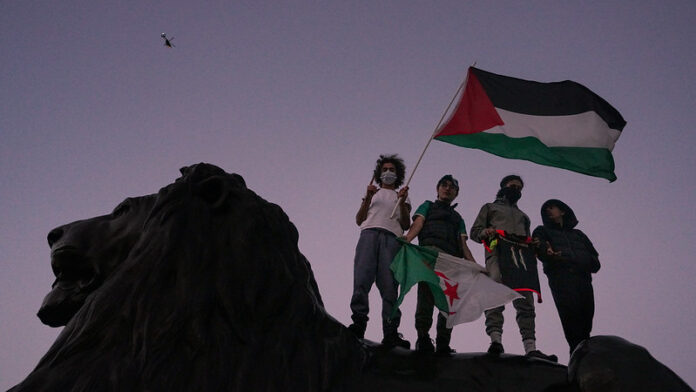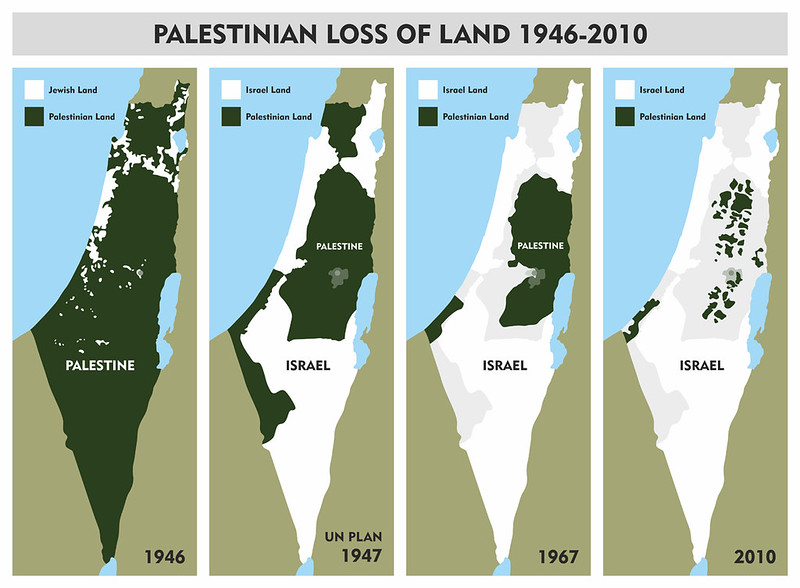

Following an escalation of violence in the Israel-Palestine conflict, The Aquinian’s editor-in-chief Giuliana Grillo de Lambarri asked St. Thomas University professors to explain the current situation and the historical context.
What happened on Oct. 7?
Hamas, a Sunni militant group, fired thousands of rockets and sent militants to attack and kidnap Israelis in an operation known as Al-Aqsa Flood. According to Hamas military leader Mohammed Deif, this was in response to settler violence and the ongoing occupation of Palestinian territory.
Related: ‘It’s horrific’: Pro-Palestine vigil calls for violence to end after weekend of attacks
Israel reacted by launching retaliatory airstrikes and Israeli Prime Minister Benjamin Netanyahu said his country will launch a ground invasion of Gaza, according to the Associated Press.
As of Oct. 26, Israel claims more than 700 Israeli deaths, while the Palestinian Health Ministry reports 7,000 Palestinian casualties since Oct. 7.
Shaun Narine, an international relations professor, said the rise of Hamas is due to the lack of legitimacy of the less radical Palestinian authority.
“The Palestinian Authority has lost most of its authority among Palestinians. It’s seen as corrupt, inept, and most importantly, and significantly, it’s largely seen as a collaborator with Israel,” he said.
Furthermore, he said Netanyahu’s government has taken a more hostile approach to Palestine, supporting settlers and creating alliances with radical Zionists.
“He has tried to create a coalition of political parties who will give him the power that he needs to alter the laws in such a way that he can protect himself,” he said. “Many people have argued that his own personal corruption has led him to try to manipulate the state.”
History before the First World War
Today’s Israel/Palestine region was conquered by the Ottomans in 1517. According to Robin Vose, a Middle East history professor, the Ottomans had a “hand-off” approach to religious minorities, meaning many religious groups lived together in relative peace.
“The millets were minority communities that were more or less self-governing. As long as they paid their taxes and were loyal to the Ottoman government, they could remain Jewish or Christian,” he said.
During the First World War, Arab uprisings against the Ottoman Empire began with the goal of creating a pan-Arab nation in what became known as the Arab Revolts.
Vose added that, while the British supported the Arab Revolts, they secretly promised the French they would divide the territories after defeating the Ottomans. The British then announced their support for the Balfour Declaration, a document promising the Jewish diaspora the establishment of a national home in Palestine.
“They’re basically lying to everyone,” he said.
Vose explained that during the Ottoman Empire, the British took over the territory and had to juggle all their promises.
Due to the Nazi threat of ethnic extermination, many Jews sought refuge outside of Europe. Vose said the British initially resisted Jewish immigration, making it largely illegal.
Furthermore, he said the Nazis were trying to instigate antisemitic sentiments among Arab populations in Palestine.
Post-Second World War and the Oslo Accords
“Everyone knew that in the aftermath of WWII, there was going to be a decolonization,” said Vose. “The question was what to do with the mandatory state of Palestine.”
In 1948, United Nations Resolution 181 divided the region into Israeli and Arab enclaves. Vose said “the British knew” the decision was going to bring violence among both states, leading to wars with the support of Transjordan and Egypt against the Israelis and tens of thousands of Palestinians were displaced during the Nakba or “disaster.”

“Both sides have tales of horror … for the Palestinian Arabs it’s the Nakba and many of their villages and homes were taken never to be seen again,” he said. “From the Jewish perspective, it was also a very traumatic time when many Jews were targeted both in military conflict, but also people being murdered by their neighbours.”
Vose emphasized that the effects of the Holocaust also shaped an existential fear in Jewish communities and guilt in Western countries.
To Vose, the closest the states have been to peace was in 1993, when the then-Israeli prime minister Yitzhak Rabin and the leader of the Palestine Liberation Organization Yasser Arafat signed the Oslo Accords.
“The Oslo Accords were very optimistic and one of the best chances that we’ve had so far for peace. But never perfect, none of these solutions are perfect.”
These accords carved out a new version of the 1948 borders to propose a two-state solution, although Vose acknowledged that the borders were “very chaotic.”
Vose said opposition to the Oslo Accords came from both sides.
The Future
While UN Secretary General António Guterres called for a ceasefire in Gaza, the United States vetoed a Security Council resolution for “humanitarian pauses” to bring lifesaving aid to Palestinians.
With no realistic peaceful solutions at the moment, Narine said the conflict will keep escalating. He added that the West’s “unlimited support” to Israel will create more aggression.
“Palestinians have virtually nobody backing them or certainly not in an equivalent way, so the Palestinians have no chance of defeating Israel in a military sense.”
Vose believes the media coverage is “very traumatic” and might be feeding a cycle of violence. He said he has friends “on both sides” and cares about Israelis and Palestinians.
“The agonies of the last two weeks have to be mourned and have to be remembered, but they cannot become justification and bait for continuing the violence.”
